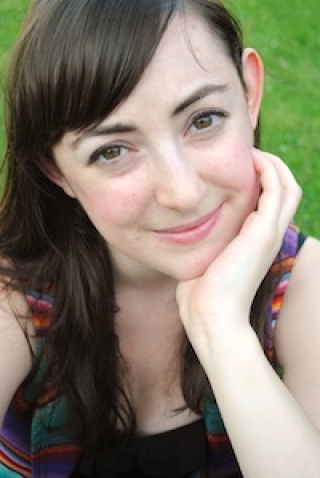Join a community of readers who are committed to Jewish stories
Sign up for JBC’s Nu Reads, a curated selection of Jewish books delivered straight to your door!
 One of the strange things about having your first book come out is that you think you’ve written one thing, and then everyone decides you’ve written something else. I guess I don’t mean en masse, but I did think I had written kind of a sad, quiet novel, and now I’m getting pegged as the funny girl.
One of the strange things about having your first book come out is that you think you’ve written one thing, and then everyone decides you’ve written something else. I guess I don’t mean en masse, but I did think I had written kind of a sad, quiet novel, and now I’m getting pegged as the funny girl.
You know who was really the funny girl?
If you said Fanny Brice you’d be right.
I grew up on musical theater the way other people grow up on sports (some of my greatest triumphs were in competitive opera singing), and watched Barbra Streisand movies like an acolyte. Forget Julie Andrews (who I’m sure is very nice) — I loved Barbra: her voice, the twinkle in her eye, her nose. I’m not exaggerating when I say that watching her sing “I’m the Greatest Star” in Funny Girl changed my life.
Funny Girl is based on the life of Fanny Brice, who sang for the Ziegfeld Follies, acted on Broadway and in film, and played Baby Snooks on the radio for years. She made a life and career out of contradictions — a Yiddish “dialectician” who never knew more than a hundred words of the language, a skinny girl who couldn’t dance and yet sang for the glamorous Follies, an independent woman who married three times.
In his biography of the performer, Herbert G. Goldman quotes Fanny on her dual nature: “Self-aware and self-perceptive, Fanny once said she had always been aware of ‘two people within me. Almost like a mother and child. I have felt like I was my own mother, and when I would think about Fanny, I would always think about myself as a child.’”
What makes Fanny such a great talent is exactly this duality, between mother and child, serious and playful. Barbra has it too, on film. Maybe it’s a Jewish thing. Although critics wrote mainly about Fanny as a comedienne, one of her greatest hits was “My Man,” which she always sang with her eyes closed, no doubt imagining her first husband, Nick Arnstein. It sounds soulful to me when I listen to it again now, and I think I know why Fanny sang torch songs — because those were the moments when she got to stop playing the funny girl.
Leigh Stein’s debut novel, The Fallback Plan, is now available. Leigh is a former New Yorker staffer and frequent contributor to its “Book Bench” blog. She lives in Brooklyn, where she works in children’s publishing and teaches musical theater to elementary school students.
Leigh Stein is the author of the novel The Fallback Plan and a collection of poetry, Dispatch from the Future. Her work has appeared in Allure, BuzzFeed, Gawker, The Hairpin, Poets & Writers, Slate, The Toast, and xoJane. Formerly an editorial staff member at The New Yorker, she currently lives outside New York City and co-directs the non-profit organization Out of the Binders.